A deep dive into the 'Eve Curse' reveals how ancient narratives influence modern gender roles, begging the question: how far have we come?
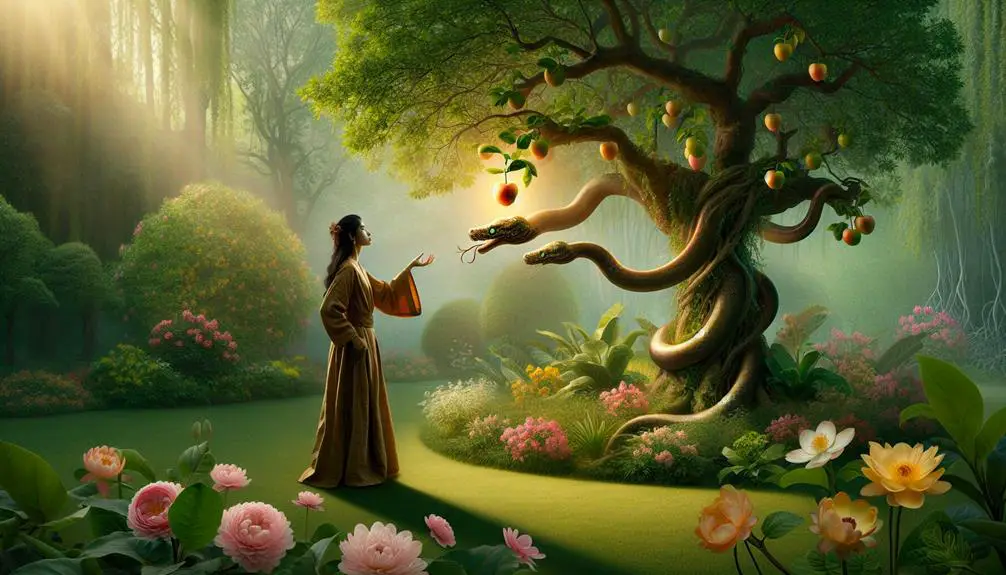
Eve Curse in the Bible
Imagine you're examining a historical text, and you stumble across the story of Eve in the Bible, a narrative that has shaped perceptions of gender roles for centuries. This tale of disobedience and punishment, often termed the 'Eve Curse,' has been interpreted in myriad ways, influencing not only religious teachings but societal norms as well.
As you explore this topic, consider how the interpretations through ages have morphed, sometimes reinforcing misogyny, other times being reevaluated through a feminist lens. What lies ahead is an opportunity to understand the complex interplay between ancient scripture and modern gender discussions, a journey that promises to challenge and perhaps change your perspective.
Key Takeaways
- The narrative of Eve's transgression has historically been used to justify the subordination of women and perpetuate misogyny.
- Modern interpretations challenge traditional views, emphasizing shared responsibility and questioning gender biases in the biblical account.
- Feminist theology and scholarly research advocate for a reevaluation of Eve's story to promote gender equality and empowerment.
- Engaging in critical dialogue and education about the narrative can empower individuals to transcend historical interpretations and combat gender inequality.
The Genesis Account
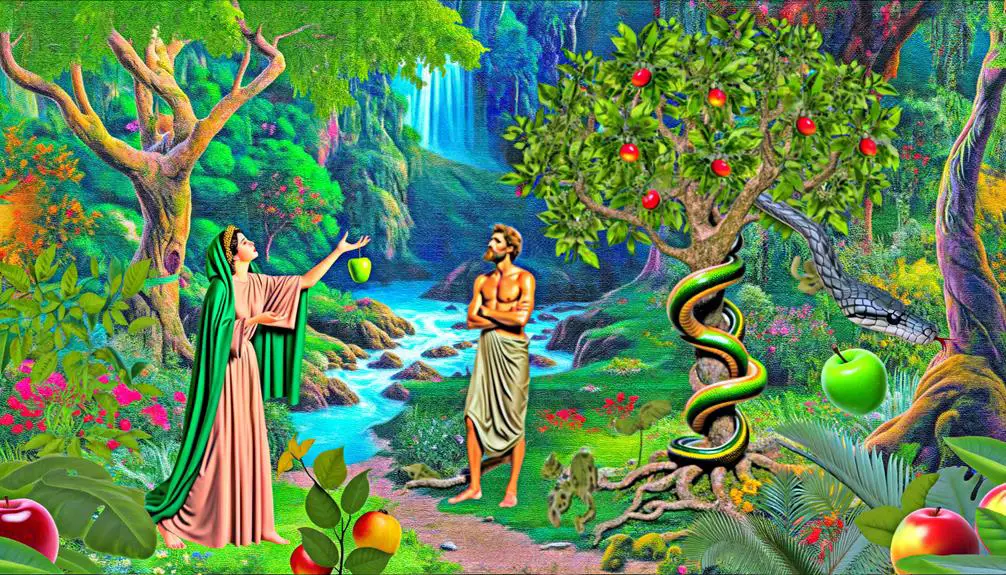
In the Genesis account, the narrative unfolds with Eve's transgression in the Garden of Eden, setting the stage for what's often referred to as the 'curse' upon her and subsequent generations. This pivotal moment is deeply embedded within the creation narrative, where the garden setting emerges not merely as a backdrop but as a critical component of the story's theological and moral fabric.
The garden setting, rich in symbolism, represents a primordial state of innocence and direct communion with God. It's within this idyllic landscape that the complexity of human choice, free will, and the consequences thereof are first explored. The narrative meticulously details the creation of Adam and Eve, their placement in the Garden of Eden, and their divine mandate to tend and keep it, underscoring the inherent responsibility bestowed upon humanity.
Your understanding of this account is enhanced by recognizing that the garden setting isn't arbitrary but intentional, designed to reflect a perfect harmony between creation and Creator. This harmony is disrupted by Eve's actions, yet the focus here isn't on the act itself but on the broader implications of disobedience within the creation narrative.
Disobedience and Punishment
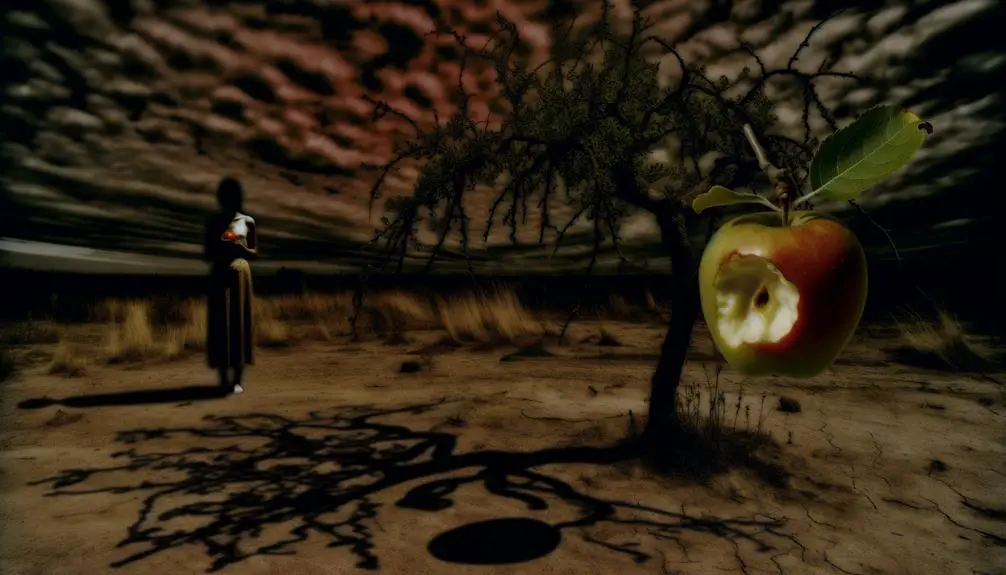
Eve's act of disobedience in the Garden of Eden marks a critical juncture, bringing about divine punishment that reshapes the human condition. This episode, central to the Temptation narrative, introduces the concept of Original Sin, fundamentally altering the dynamics between humanity and the divine. Through Eve's interaction with the serpent and the subsequent consumption of the forbidden fruit, she not only disobeys a direct command from God but also initiates the first act of human rebellion, setting a precedent for future generations.
The punishment that follows is swift and multifaceted, affecting not only Eve but Adam and the serpent as well. For Eve, the consequences are immediate and severe, encompassing increased pain in childbirth and a reshaped relationship with Adam, marked by subordination. This punishment extends beyond the individuals involved, encapsulating the entirety of human existence. It signifies the loss of innocence and the onset of mortality, introducing labor and suffering into the human experience.
The narrative does more than recount a tale of transgression and retribution; it serves as a foundational element in understanding the human condition in a theological context. The concept of Original Sin, derived from this episode, underlines the inherent fallibility of humanity and the perpetual struggle between obedience to divine will and the allure of temptation.
Analyzing this episode offers insights into the complexities of human nature, divine justice, and the enduring impact of choices. The Temptation narrative, with its profound implications, remains a pivotal reference point in discussions about morality, free will, and the origins of human suffering.
Interpretations Through Ages
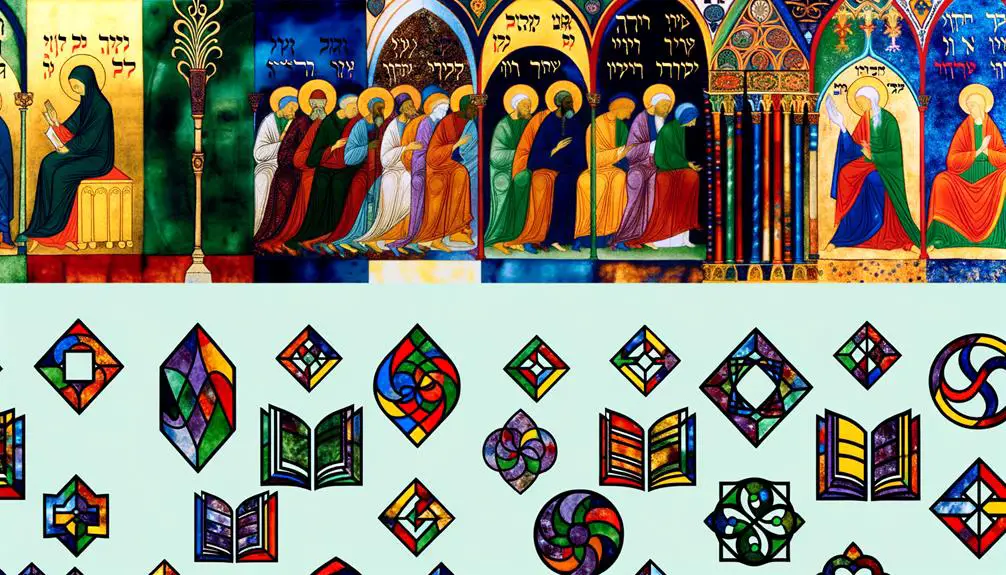
Throughout history, scholars and theologians have debated the implications of Eve's actions, offering diverse interpretations that reflect evolving societal, cultural, and religious contexts. Initially, many viewed Eve's actions as the primary cause of humanity's fall, placing less emphasis on Adam's role. However, as perspectives shifted, some interpretations began to scrutinize Adam's participation more critically, suggesting that his acquiescence played a significant part in the narrative.
The symbolism of the serpent, too, has been subject to varied interpretations over the ages. Initially seen as a mere tempter, its role has been reevaluated in modern times as representing wisdom, renewal, or even as a catalyst for human consciousness and knowledge. This shift underscores a broader trend towards more nuanced readings of biblical texts, where symbols are recognized for their multifaceted meanings.
Moreover, the evolving interpretations highlight a move away from literal readings towards more allegorical or metaphorical understandings. This transition reflects an increased appreciation for the complexity of biblical narratives, recognizing that they can offer insights into human nature, ethical dilemmas, and the nature of temptation and forgiveness, beyond their historical or theological implications.
As society's values and norms have changed, so too have the interpretations of Eve's story, with recent scholarship often focusing on themes of agency, autonomy, and the dynamics of power and knowledge. This signifies a broader shift in biblical scholarship, where traditional narratives are being reexamined through contemporary lenses, enriching our understanding of these ancient texts in the process.
Gender Roles and Misogyny
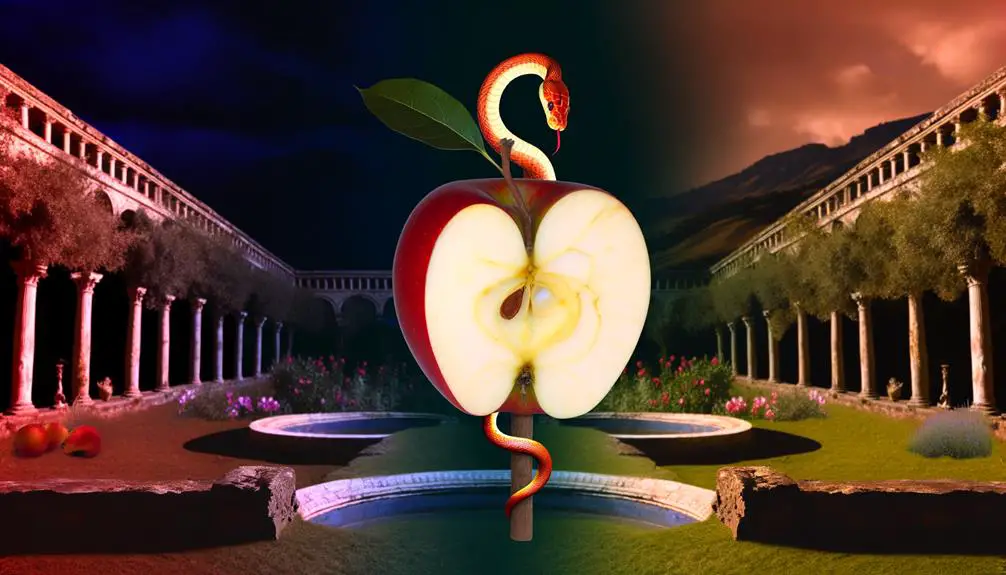
The interpretation of Eve's narrative has profoundly influenced societal perceptions of gender roles and fostered enduring forms of misogyny. Historically, patriarchal structures have leveraged this story to justify the subordination of women, embedding a skewed view of gender relations into societal norms. You've likely observed how this narrative has been used to dictate what's considered 'natural' for men and women, often placing women in a position of inherent inferiority and submission.
This skewed interpretation hasn't only shaped household dynamics but also impacted women's opportunities in broader societal contexts. In many cultures, the story of Eve has been cited as a rationale for denying women leadership roles, both in religious institutions and in the secular world. You can see the remnants of this reasoning in the continued struggle for gender equality across various sectors.
Moreover, the narrative has contributed to the development of a culture where women's bodies are objectified and their autonomy is restricted. The story of Eve's temptation and subsequent punishment has been twisted to suggest an innate moral weakness in women, further entrenching misogynistic attitudes. You've likely noticed how these views permeate societal norms, influencing everything from legal systems to entertainment.
The critical analysis of these interpretations reveals the deep-seated biases that continue to shape gender roles today. By understanding the historical use of Eve's story to support patriarchal structures, you're better equipped to challenge these outdated notions and advocate for a society that recognizes and respects the equality of all genders.
Theological Perspectives

Several theological perspectives offer nuanced understandings of Eve's narrative, challenging traditional interpretations that have perpetuated gender inequality. These perspectives not only reevaluate the concept of original sin but also illuminate diverse redemption paths that transcend simplistic, patriarchal readings of the text.
- Original Sin Revisited: Traditional views cast Eve as the progenitor of original sin, a notion that has underpinned much of the gender discrimination within religious contexts. Yet, some theologians argue that focusing solely on Eve's transgression overlooks the broader theological implications of human fallibility and divine grace. This interpretation suggests that both Adam and Eve's actions symbolize the inherent vulnerability of humankind, rather than a gender-specific propensity towards sin.
- Shared Responsibility: A growing number of scholars emphasize the shared responsibility between Adam and Eve in the narrative. This perspective challenges the disproportionate blame placed on Eve, suggesting that the story reflects a mutual departure from innocence. By recognizing the equal involvement of both characters, this view dispels the notion of inherent female weakness or culpability.
- Diverse Redemption Paths: The story of Eve has also been examined for its themes of redemption and salvation. Theologians have highlighted multiple redemption paths that emerge from the narrative, pointing to a God of second chances who offers redemption to all, irrespective of gender. This interpretation fosters a more inclusive understanding of spiritual restoration and counters narratives that have historically marginalized women.
Analyzing Eve's narrative through these theological lenses not only challenges entrenched gender biases but also offers a richer, more equitable understanding of the biblical text.
Feminism and Reinterpretation
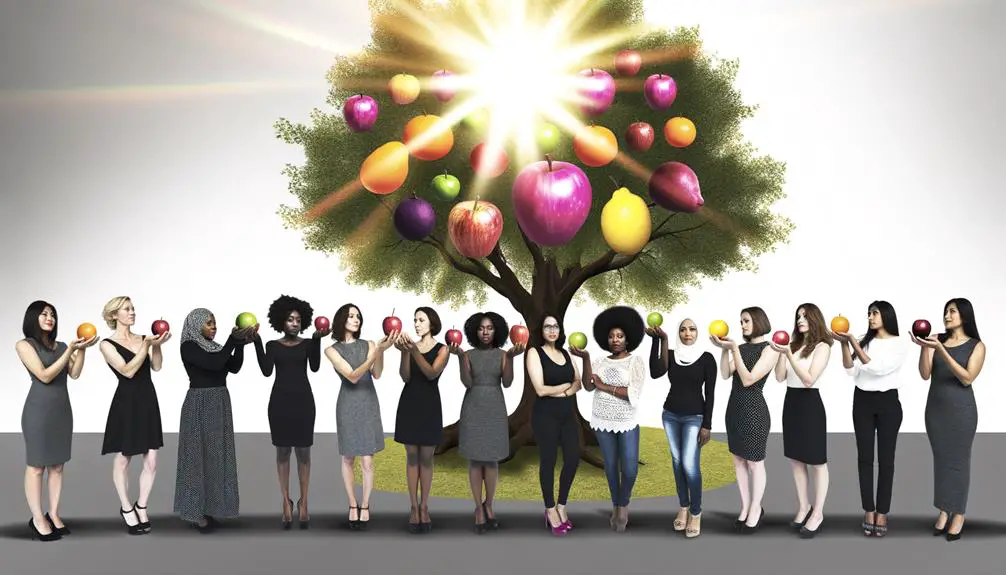
Building on these evolving theological perspectives, feminist interpretations further challenge and reinterpret Eve's narrative, shedding light on its implications for gender equality in both historical and contemporary contexts. You'll find that these modern narratives don't just question the traditional depiction of Eve as the progenitor of original sin, but they also seek to uncover the layers of patriarchal interpretation that have shaped her story over centuries.
Feminist theologians argue that the so-called 'Eve curse' has been used to justify gender inequality, portraying women as inherently deceitful or weak. However, by reexamining the text with a critical eye, they propose that Eve's actions can be seen as a quest for knowledge, autonomy, and agency—a far cry from the negative connotations traditionally assigned. This reinterpretation doesn't just serve to challenge existing power dynamics; it also acts as a form of symbolic empowerment for women, suggesting that defiance in the face of unjust authority isn't only justified but commendable.
Moreover, by placing Eve in a context that recognizes her as a complex character capable of making decisions, feminist readings offer a more nuanced understanding of her role in the biblical narrative. This approach not only disrupts the binary of good versus evil but also encourages a more egalitarian view of gender relations, highlighting the importance of dialogue, understanding, and partnership.
In essence, feminist reinterpretations of Eve's narrative push for a reevaluation of traditional gender roles and advocate for a society where equality isn't just an ideal, but a lived reality. Through this lens, Eve's story becomes a powerful tool for discussing and promoting gender equality, providing a rich ground for reflection and conversation on the dynamics of power, gender, and interpretation.
Cultural Impact
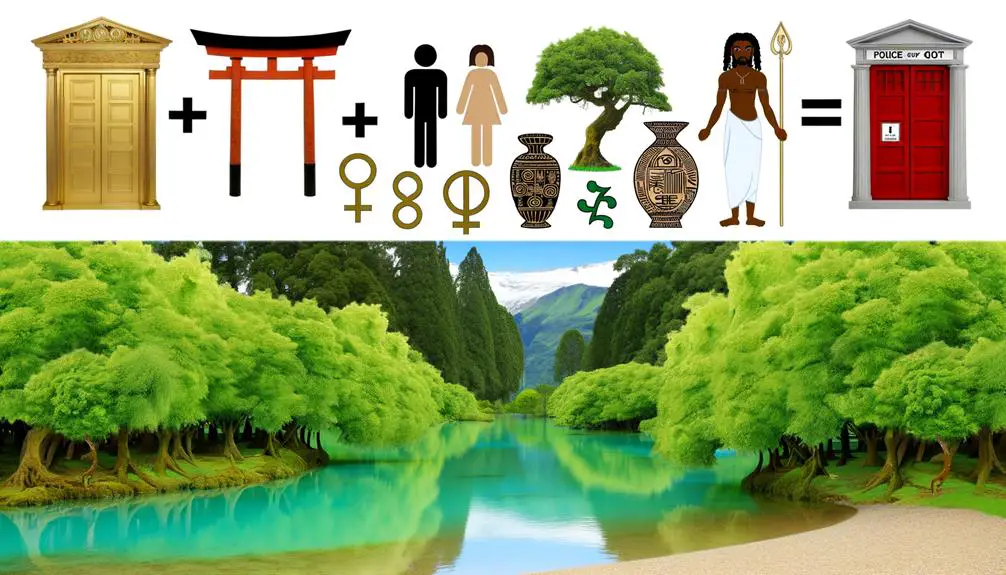
Frequently, cultural narratives surrounding Eve's story profoundly influence societal views on gender roles and relationships. This impact isn't merely historical but continues to echo in contemporary settings, shaping and sometimes constraining the roles that you, irrespective of gender, navigate daily. The story of Eve, often laden with interpretations of disobedience and resultant punishment, has been leveraged to justify gender dynamics that favor a patriarchal ordering of society.
Artistic representations of Eve have historically reinforced specific societal norms, depicting her as the archetype of temptation and sin. These portrayals contribute to a collective consciousness that subtly and overtly colors perceptions of women's roles and capabilities. Here are three significant ways these narratives affect you:
- Perpetuation of Gender Stereotypes: The depiction of Eve as inherently deceptive or weak has been used to rationalize gender stereotypes, influencing everything from career opportunities to societal expectations of behavior.
- Influence on Legal and Social Policies: Historically, the interpretation of Eve's story has underpinned legal and social policies that limit women's rights, from voting to reproductive autonomy.
- Shaping of Interpersonal Dynamics: These narratives seep into personal relationships, informing power dynamics and expectations between partners, often placing undue burdens on women.
Moving Forward
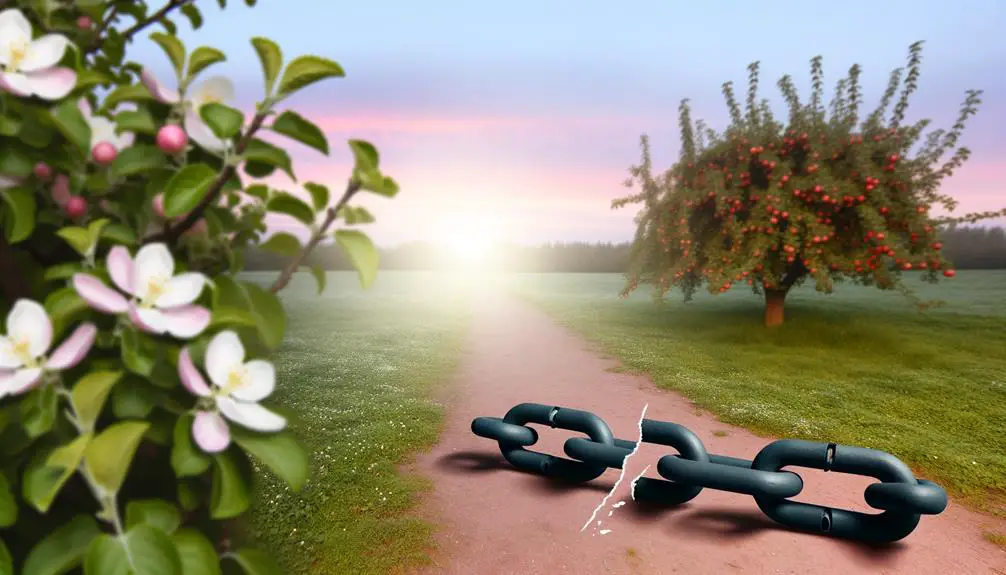
As you consider the evolution of the Eve curse's interpretation, it's crucial to recognize the potential for overcoming historical views that have often marginalized women.
By reexamining these interpretations, you lay the groundwork for empowering future generations to challenge and redefine traditional narratives.
This shift not only promises a more inclusive understanding but also paves the way for a balanced discourse on gender roles within religious texts.
Overcoming Historical Interpretations
How can modern readers navigate the maze of historical interpretations surrounding the 'curse of Eve' to forge a path toward a more enlightened understanding? The journey involves embracing modern education and acknowledging societal evolution, which together can dismantle outdated perceptions.
Here are three steps to consider:
- Critically Analyze Traditional Narratives: Question the origins and motivations behind historical interpretations.
- Leverage Scholarly Research: Seek out contemporary studies that offer fresh perspectives on ancient texts.
- Engage in Open Dialogue: Encourage conversations that bridge diverse viewpoints and foster mutual understanding.
Empowering Future Generations
Building on the foundation of critically analyzing traditional narratives, leveraging scholarly research, and engaging in open dialogue, it's essential to consider how we can empower future generations to sustain this progress. Modern education plays a pivotal role, offering tools and platforms for critical thinking and inclusive perspectives. It's the bedrock for challenging outdated beliefs and fostering a more equitable understanding of religious texts, including interpretations of the Eve curse.
Family dynamics also undergo transformation, becoming forums for open discussions about gender roles and equality. By nurturing environments where questioning and dialogue are encouraged, you're contributing to the dismantling of historical biases. This progressive approach in both education and family life ensures that future generations are equipped with the knowledge and mindset needed for ongoing constructive critique and empowerment.
Frequently Asked Questions
How Has the Concept of the "Eve Curse" Influenced Legal Systems and Laws Regarding Women's Rights Historically and in Contemporary Societies?
You're exploring how historical perceptions of women have shaped their legal treatment, impacting their rights and roles in society.
This scrutiny reveals economic implications and barriers to social mobility, reflecting deep-rooted biases in legal systems.
Today, while progress has been made, the residue of these outdated views still influences women's rights, challenging their economic positions and hindering social mobility.
It's a complex legacy that contemporary societies continue to address and unravel.
In What Ways Have Non-Abrahamic Religions or Belief Systems Addressed or Conceptualized the Idea of the First Woman's Transgression and Its Impact on Humanity?
In exploring the first woman's misstep across various traditions, you'll find that non-Abrahamic beliefs often weave tales with Goddess mythology at their core. These narratives, unlike the tale you're sidestepping, frequently celebrate rather than condemn.
Cultural rituals in these systems can embody empowerment and reverence for feminine divinity, illustrating a stark contrast. Analyzing these perspectives offers a nuanced understanding of humanity's origins, untethered from the narrative you're avoiding.
How Do Psychological Theories Interpret the Effects of the "Eve Curse" Narrative on Individual Self-Perception and Relationships Between Genders?
Psychological theories suggest that narratives like the 'Eve curse' impact your self-perception and gender relationships through parenting styles and cognitive biases. You might internalize gender roles depicted in such stories, influencing how you perceive yourself and interact with others.
Cognitive biases can lead to the reinforcement of stereotypes, affecting both personal and societal expectations. These insights help you understand the deep-seated origins of some gender dynamics and self-concept issues you face today.
Are There Notable Artistic Representations (In Literature, Painting, Music, Etc.) That Challenge or Offer Alternative Viewpoints to the Traditional Understanding of the "Eve Curse"?
Yes, many artists have delved into garden imagery and serpent symbolism to explore themes beyond traditional narratives. They've woven these motifs into their works, challenging or reinterpreting the original connotations.
By analyzing literature, paintings, and music, you'll find allegorical layers that offer alternative viewpoints, inviting a deeper understanding of gender relations and self-perception.
This scholarly approach reveals how creative expressions can reveal new interpretations and question established beliefs.
How Have Advancements in Gender Studies and Queer Theory Contributed to the Discussions Around the "Eve Curse" and Its Relevance in Modern Gender Discussions?
Advancements in gender studies and queer theory have significantly shaped your understanding of gender identity and its societal constructs. Through queer deconstruction, you've learned to challenge traditional narratives and explore the fluidity of gender.
This approach has opened new avenues for discussing gender roles and identity, pushing you to reconsider preconceived notions and embrace a more inclusive perspective. It's reshaped your dialogue around gender, making it more relevant and reflective of diverse experiences.
Conclusion
You've witnessed the weighty words woven through the narrative of Eve's curse, dissecting disobedience and delving into diverse interpretations. This scholarly scrutiny surfaces significant insights into gender dynamics, theological thoughts, and cultural consequences.
Feminism's fresh frame refashions the tale, challenging traditional tropes and teaching us to tread thoughtfully through texts. As we advance, acknowledging the ancient account's array and appeal aids in appreciating its enduring essence and evolving interpretations.
Thus, our journey juxtaposes judicious judgment with jubilant jubilation.

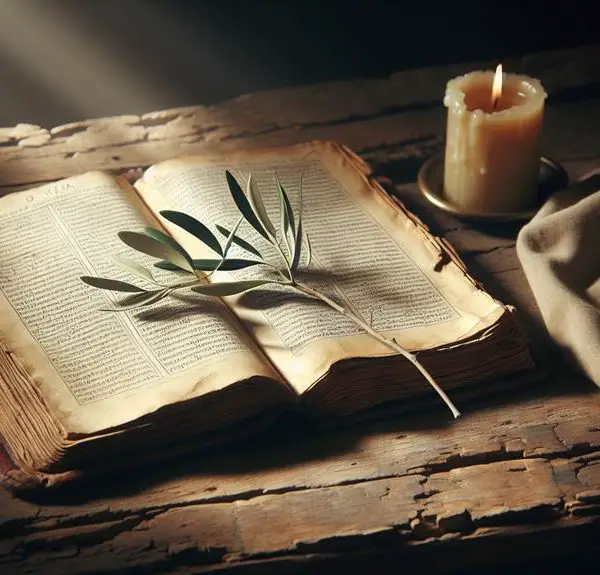

Sign up